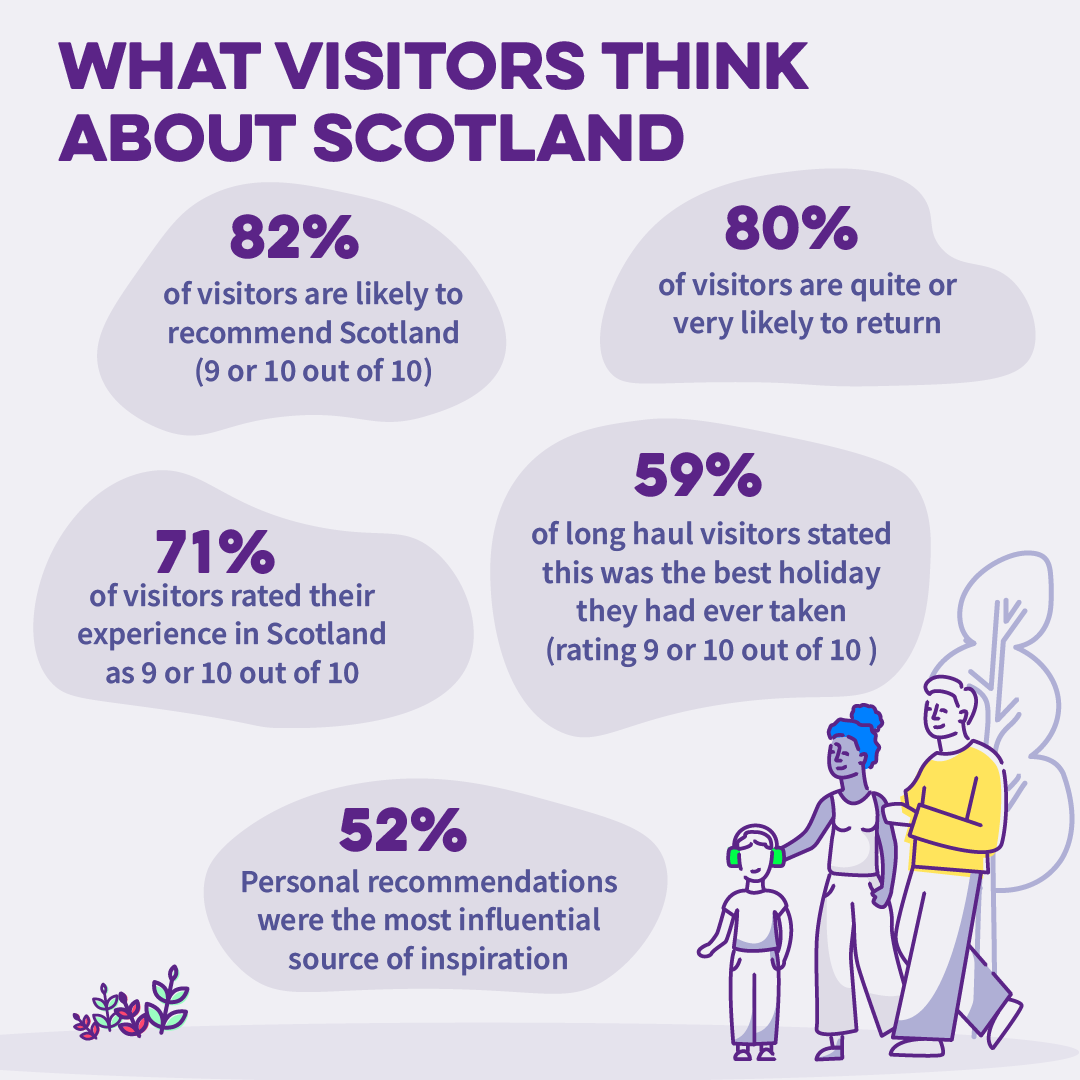Visitor Insights
Today VisitScotland’s Insights team combine consumer perspectives with industry knowledge to help Scottish tourism businesses meet the challenges of today’s marketplace. From consumer trends and visitor motivations to industry performance and markets, they use a wide range of tools to delve deeper into our industry.
The International Passenger Survey (IPS) dates back to 1961 and is our main source of data for tracking how many overseas visitors come to Scotland, where they are from, how long they stay and how much they spend.
Over the years it has become much more sophisticated with the advance of technology and shift to electronic data capture. To understand our domestic overnight and day visitors, we use the Great Britain Tourism Survey (GBTS), originally launched in 1989.
One of the biggest changes over the years has been the tools and methods available. For example, Google Analytics helps us see how users interact with our content on corporate and consumer websites, and social listening helps us better understand what people are saying on social media about Scottish tourism.

Results from the Scotland Visitor Survey 2023
